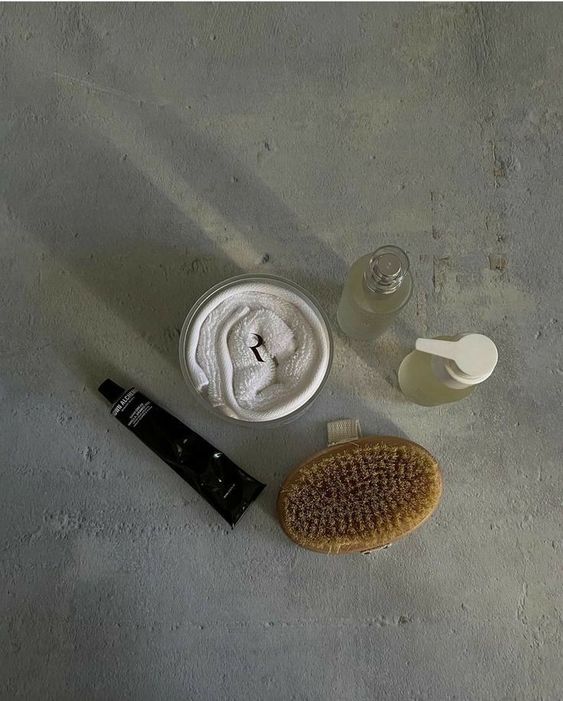
hydration
levels for your body and skin is essential information. Let's take a look at what water actually is, how it serves your body organs, specifically your skin, and skin dehydration countermeasures.Water is the quintessential element of existence and survival. Living and nonliving organisms would simply not be able to thrive without it. This odorless, tasteless, transparent, and inorganic substance is composed of two atoms of hydrogen and 1 oxygen (H2O) [1]. Water is like no other chemical as it exists in the liquid, gaseous and solid form[1]. Water plays a crucial role in skincare hydration. After all, it makes up 64% of the largest organ of our body: the skin[2]. Before we focus on the skin, let's review the main functions of Planet Earth's precious fluid. According to Mayo Clinic, water has a leading role in body equilibrium or homeostasis[3]. If any of the following functions fail, our health would be compromised to such an extent that we would venture into a life-threatening zone:
- Joint lubrication
- Protection of bodily structures
- Regulation of body temperature
- Keeping the eyes, nose and mouth moistened
- Transportation of nutrients and oxygen to the cells
- Detoxification of the waste products via the liver and kidneys
- Dissolves nutrients so as to increase their bioavailability and absorption
Water is a very important component of the Natural Moisturizing Factor (NMF) of the skin which, alongside the epidermal lipids and keratinocytes, form its protective barrier[4]. The NMF keeps the outermost layer of the epidermis deeply hydrated, promotes proper shedding as well as plasticity of skin cells[4]. Water is also used by the skin to flush toxins (as sweat) and carry nutrients where they are needed the most.
It is estimated that we lose approximately 300-400 ml of water per day by skin diffusion[5].
This amount is part of the total insensible water loss, which also takes place in the digestive, respiratory and urinary systems[5]. The term Transepidermal Water Loss (TEWL) is frequently used in the cosmetic and dermatology industries to refer to the water that evaporates through the skin.
Does Drinking Water Affect The Skin's Radiance?
There is no doubt that we need to drink water in order to maintain a glowy complexion. A lack of water intake can be perceived on the skin as sensitivity, dullness, roughness, severe desquamation, tendency to infection, less protection against UV radiation, chapped lips, and very visible aging signs. Nevertheless, topical dehydration can take place even if there is an internal water balance. Yep, this happens all too often due to a number of external factors that wreak havoc on the water content of the skin such as:
- Over-cleansing the skin
- Cleansing with alkaline formulas (like soap bars)
- Extreme temperatures (cold, heat, wind)
- Exposure to pollutants
- Exfoliating with harsh formulas
- Not applying a suitable facial cream to lock in the moisture
We really have to avoid all these aggressors if we want to prevent/reverse a vicious cycle of Transepidermal Water Loss. Even if the skin dehydration is caused by a poor water consumption, external measures will have to be implemented as the body always prioritizes the inner water balance over the outer one. This means that the water reservoir of the skin will be the last to be replenished whenever our bodies suffer a general dehydration state.
Skin Dehydration Countermeasures: Factors To Consider
Do not despair as there are plenty of things that you can do to combat dehydrated skin. Remember that this equals a lack of cutaneous water, as opposed to dry skin which involves a diminished production of topical lipids. We are pleased to share here ROSAFA's to-do list for dehydrated skin:
- Cleanse only twice per day with a mildly acidic cleanser: you can use a micellar water if a third cleanse is needed (such as after a strenuous exercise routine)
- Incorporate formulas that are rich in super hydrating ingredients like vegetable-derived hyaluronic acid, mushroom extracts, sodium PCA, niacinamide, etc.
- After toning or applying a serum, layer a moisturizer that contains good quality emollients (cold pressed vegetable oils, ceramides, squalane, butters, etc.). These will help to seal the water and ward off TEWL.
- Apply a mineral-based sunscreen on a day-to-day basis and reapply every two hours during the daylight.
- Drink pure water when thirsty: the 8 glasses of water per day advice does not apply to everyone. Water needs depend on a huge list of factors: age, weight, state of health, physical activity, location, etc. Some health organizations recommend consuming 2-3 liters daily. We highlighted the word consuming because a considerable amount of that water can be eaten and not just drunk. Choose foods with a 70+ water content, fruits and veggies are the perfect option, to round up your water intake.
- Sip water: gulping down the water will not allow our bodies to properly absorb it. Keep in mind that the kidneys can only filter 0.8 to 1 liters per hour[1]. Drinking excessive amounts of water (water intoxication) could lead to hyponatremia[6], which is low sodium levels in the blood and is an extremely dangerous condition.
- Be mindful of your urine: a dark pee is a good indicator that you are not drinking enough water. This should be clear and light yellow without an overpowering smell. Increase your water intake until the urine looks healthy. Those who suffer from a health condition, are high-performance athletes, are pregnant, or have a job that requires a significant physical exertion should consult a nutritionist for a much more accurate water consumption recommendation.
As you have read, drinking water and staying hydrated is essential to our overall well-being, especially our skin. Next time you see a glass of water, make sure to drink it up mindfully for a better and brighter future.
References
[1] https://www.britannica.com/science/water
[4] https://pubmed.ncbi.nlm.nih.gov/20211113/
[5] https://www.ncbi.nlm.nih.gov/pmc/articles/PMC3105115/
[6] https://e-apem.org/journal/view.php?doi=10.6065/apem.2013.18.2.95
Blog post tags:-
best hydrating drinks
-
stay hydrated
-
how to hydrate fast
-
sipping water
-
water drink schedule
-
how long does it take for water to hydrate you
-
how much water can your body absorb in an hour




